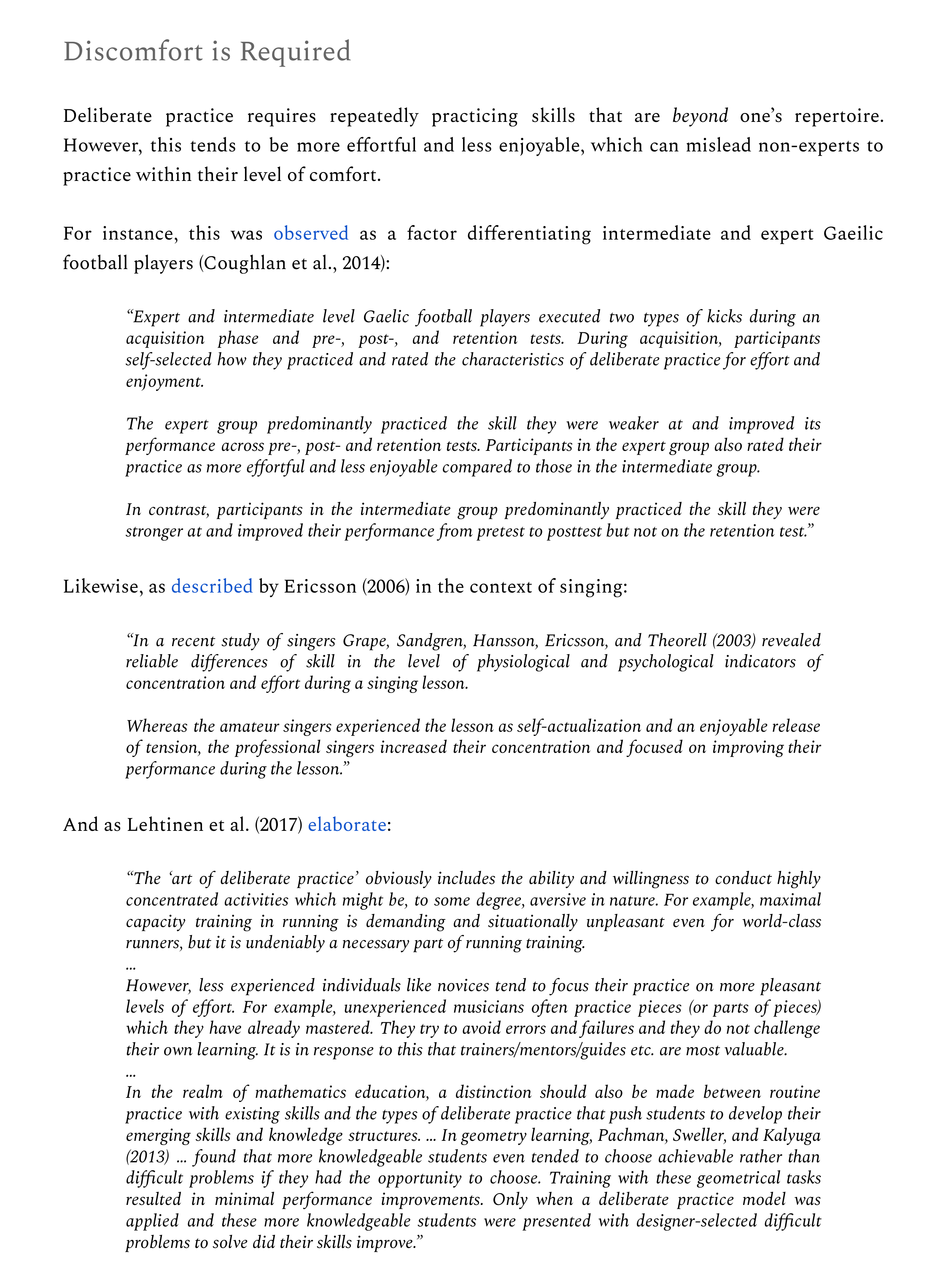Enjoyment is a Second-Order Optimization
Fun is a supplement, not a substitute, for deliberate practice.
Want to get notified about new posts? Join the mailing list and follow on X/Twitter.
If you are seeking to maximize your “bang for buck” in terms of learning per unit practice time…
then enjoyment is a second-order optimization that is often at odds with the first-order optimization, namely, deliberate practice.
A key feature of deliberate practice is that
- it requires continually practicing beyond one's area of comfort, and
- this tends to be more effortful and less enjoyable (as one would expect of something that is by definition uncomfortable).
If you want to maximize your learning efficiency:
- Engage in deliberate practice
- Make the deliberate practice as enjoyable as possible (or, equivalently, as least unpleasant as possible)
When it comes to learning efficiency, here’s the whole spectrum:
enjoyable deliberate practice $>$ unpleasant deliberate practice $\ggg$ other enjoyable forms of training $>$ other unpleasant forms of training
Now, this is not to say that enjoyment is unimportant.
If deliberate practice is not enjoyable for someone, then other enjoyable activities can sometimes be useful for increasing motivation and softening the discomfort associated with deliberate practice.
But it’s important to realize that fun is a supplement, not a substitute, for deliberate practice.
Additionally, while deliberate practice is inherently uncomfortable, you can normalize yourself to it via repeated exposure – and once you begin to see your tiny improvements compounding into massive long-term gains, it can feel satisfying. As the saying goes, “nothing succeeds like success.”
More info in Chapter 11: Deliberate Practice of The Math Academy Way.
Here’s a particularly relevant snippet:

Want to get notified about new posts? Join the mailing list and follow on X/Twitter.